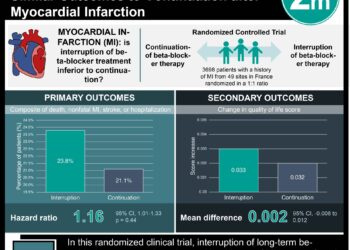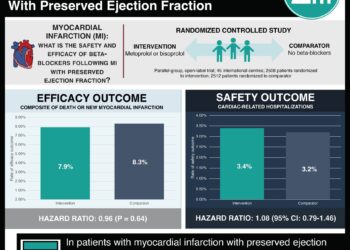Quick Take: β-Blocker use in pregnancy and the risk of congenital malformations: an international cohort study
Beta-blocker medications are commonly used in managing high blood pressure in pregnancy. With an increased prevalence of obesity and related comorbidities in women of reproductive age, exposure to anti-hypertensive medications in early pregnancy has also become more common. The relationship between beta-blocker exposure in utero and the risk of congenital malformations, however, has not been well established. In this cohort study, health registries from the 5 Nordic countries (n=2,310,825) and the US Medicaid database (n=1,358,708) were used to estimate the risks of major congenital malformations associated with first-trimester exposure to beta-blockers in pregnant women with hypertension. Researchers found that women treated with beta-blockers were older than untreated women, more likely to have given birth previously, and were more likely to use anti-hyperglycemic agents. In the US subcohort, women were more likely to smoke and have additional indications for beta-blockers (i.e. migraine, anxiety, arrhythmia, congestive heart failure, ischemic heart disease). The risk of congenital malformations overall was not significantly increased in women using beta-blockers in the first trimester of pregnancy in both the Nordic (RR 1.22, 95% CI 0.88 to 1.71) and US cohorts (RR 1.01, 95% CI 0.80, 1.27). Similar findings were obtained for specific congenital malformations, including cardiac defects and cleft palate. This study was limited due to restricted analysis of live births and exposure based on dispensed medications. Nonetheless, the results of this study indicate that the maternal use of beta-blockers in the first trimester is not associated with a significantly increased risk of congenital malformations.
Click to read the study in Annals of Internal Medicine
Image: PD
©2018 2 Minute Medicine, Inc. All rights reserved. No works may be reproduced without expressed written consent from 2 Minute Medicine, Inc. Inquire about licensing here. No article should be construed as medical advice and is not intended as such by the authors or by 2 Minute Medicine, Inc.







